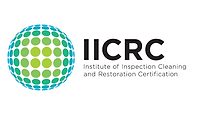Ask the Expert
IICRC S590 Standard for Assessing HVAC Systems Following a Water, Fire or Mold Damage Event
In our fast-paced and interconnected world, industry standards play a vital role in shaping the success and growth of different sectors. These standards serve as a fundamental framework for innovation, collaboration, and seamless integration across industries.
Industry standards provide a common language and structure that enable businesses to thrive, which of course includes our industry of restoration and remediation. In this article and episode of Ask the Expert with Tom Yacobellis, founder and national director of DUCTZ, we will delve into the importance of industry standards and their contributions to industry advancement.
1. Enabling Interoperability and Compatibility: Industry standards are essential in promoting interoperability and compatibility between various products and systems. When companies adhere to common standards, it becomes easier to integrate and exchange information, resulting in increased efficiency and reduced costs. For instance, standards like USB, Bluetooth, and Wi-Fi have revolutionized the way devices communicate with each other, facilitating seamless connectivity and enhancing user experience in the technology sector.
2. Fueling Innovation: Industry standards act as catalysts for innovation by providing a level playing field for businesses to compete and collaborate. When companies follow common guidelines and specifications, they can focus their resources on developing new and groundbreaking ideas, rather than reinventing the wheel. This leads to accelerated innovation cycles, faster time-to-market, and ultimately, benefits consumers with improved products and services.
3. Ensuring Quality and Safety: Standards also play a critical role in ensuring the quality and safety of products and services. By establishing benchmarks and best practices, industry standards help companies meet regulatory requirements and maintain high standards of quality. For example, standards like HIPAA (Health Insurance Portability and Accountability Act) ensure the privacy and security of patient data, while ISO (International Organization for Standardization) standards ensure the safety and efficacy of medical devices in the healthcare sector.
4. Fostering Collaboration and Knowledge Sharing: Industry standards provide a platform for collaboration and knowledge sharing among stakeholders. By bringing together experts, researchers, and industry professionals, standards development organizations facilitate the exchange of ideas, best practices, and lessons learned. This collective effort leads to the development of robust standards that address emerging challenges and drive continuous improvement across industries.
5. Enhancing Global Trade and Market Access: Industry standards play a vital role in facilitating global trade and market access. When companies adhere to internationally recognized standards, it becomes easier to enter new markets and meet the requirements of customers worldwide. Harmonized standards eliminate trade barriers, reduce duplication of efforts, and promote fair competition, benefiting both businesses and consumers.
Industry standards are the backbone of modern economies, enabling innovation, collaboration, and progress across various sectors. From promoting interoperability and driving innovation to ensuring quality and safety, these standards provide a solid foundation for businesses to thrive. By adhering to industry standards, companies can unlock new opportunities, enhance their competitiveness, and contribute to the overall advancement of not only their industry but society as a whole.
Looking for a reprint of this article?
From high-res PDFs to custom plaques, order your copy today!






